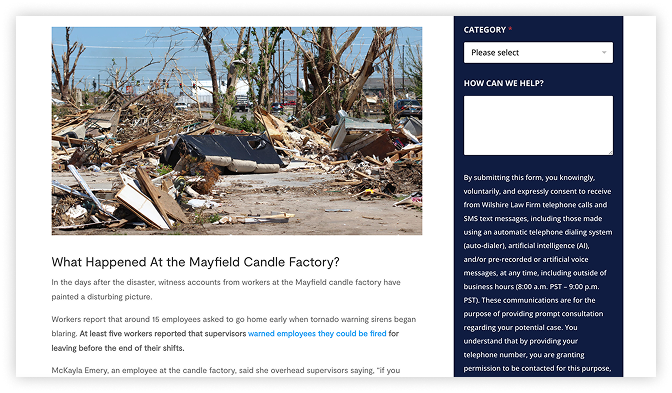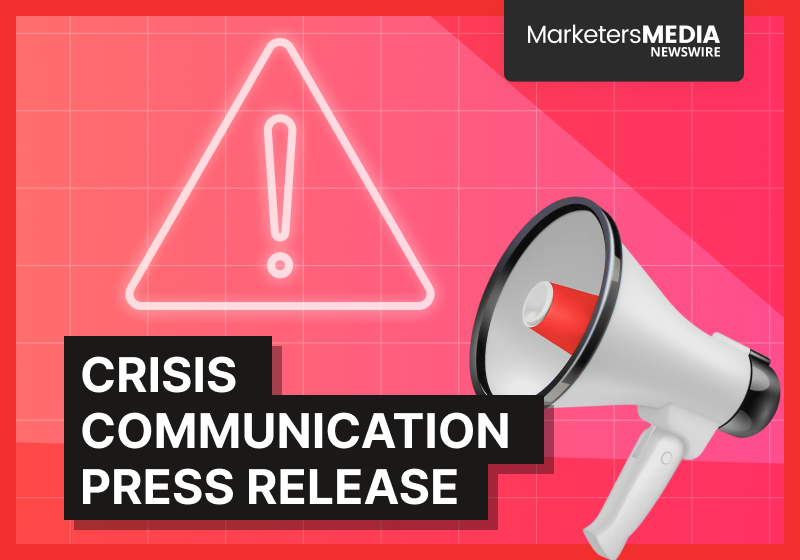It’s a fine Tuesday morning, you’re scrolling through social media and sees your company’s name trending but— for the wrong reasons.
A customer complaint has gone viral. Journalists are ringing. Your phone won’t stop buzzing.
How you respond in the next few hours could make or break your reputation.
This is exactly what PR crisis management is built for and why 95% of business leaders know they'll face a crisis, yet still lack a formal response plan.
This guide will show you exactly how to prepare for, manage, and recover from any crisis that threatens your brand.
What is PR Crisis Management?
PR crisis management is a systematic and strategic approach designed to protect your organization's reputation and operations when facing unexpected, potentially damaging events.
Notice the word "systematic." This isn't about scrambling when disaster strikes.
Effective crisis management is a highly structured discipline that involves methodical planning, swift action, and strategic thinking.
Think of it as your reputation insurance policy. You hope you'll never need it, but when crisis hits, having a solid plan can mean the difference between a minor setback and a business-ending catastrophe.
Crisis Management vs Crisis Communication: Understanding the Difference
Many people use these terms interchangeably, but they serve distinct functions in protecting your organization.
Crisis Management is the overarching strategic framework that addresses the entire organizational response. It encompasses:
- Operational fixes and business continuity
- Legal considerations and compliance
- Financial stability and resource allocation
- Human resources and internal restructuring
- Risk assessment and mitigation strategies
Crisis Communication is the specialized voice within that framework, focused on:
- Managing information flow and public perception
- Developing key messages for different audiences
- Media relations and stakeholder engagement
- Social media monitoring and response
- Internal communications with employees
Think of it this way: Crisis management fixes the problem. Crisis communication explains what happened, what you're doing about it, and why stakeholders should maintain trust.
Both functions must work together seamlessly.
The most effective organizations embed communication experts within their core crisis teams from day one, rather than treating them as an afterthought.
Why Crisis Management is Critical for Your Business
Reality check: Information spreads faster today than ever before.
While 95% of business leaders anticipate facing a crisis, 49% lack a formal response plan. This gap represents a massive vulnerability.
The Real Cost of Being Unprepared:
Poor crisis management doesn't just hurt your reputation, it hits your bottom line hard:
- Stock prices can plummet following reputational crises
- Revenue loss occurs as customers seek alternatives
- Legal fees and crisis management costs skyrocket
- Operational disruptions can last months or years
- Long-term financial stability gets compromised
Investing in crisis preparedness costs far less than cleaning up the mess afterward.
6 Types of Crisis with Real Examples
1. Financial Crisis
Delta Air Lines Bankruptcy

What happened: Following 9/11, the airline industry faced severe liquidity issues that led to Delta Air Lines' bankruptcy filing.
Response: A company facing a financial crisis like bankruptcy would need to communicate transparently with stakeholders, including employees, investors, and customers.
Lesson: Financial crises require transparent communication about recovery plans and stakeholder protection.
2. Data Breach Crisis
Marriott/Starwood Multiple Data Breaches (2014-2020)

What happened: Over a six-year period, Marriott experienced three separate data breaches that impacted more than 344 million customers globally.
Response: Facebook was subject to public outrage and regulatory scrutiny, which prompted the implementation of new privacy controls.
Lesson: Marriott's response to the Starwood data breaches was criticized for a four-year delay in disclosing the initial breach. This slow and insufficient response led to a 10% stock drop and a $24 million fine, highlighting how delayed action can significantly damage a brand.
3. Natural Disaster Crisis
Amazon and Mayfield Consumer Products Tornado (2021)

What happened: Unpredictable events like tornadoes disrupted business facilities, supply chains, and operations.
Response: The companies had to manage search-and-rescue efforts and address challenges to their business continuity plans.
Lesson: Such events test a company's business continuity plans and crisis communication under extreme pressure.
4. Operational Crisis
KFC's "FCK Bucket" (2018)
What happened: Faced a significant operational crisis when it ran out of chicken in the majority of its 870 UK & Ireland restaurants due to delivery delays.
Response: KFC responded with a humorous newspaper ad that rearranged its logo to read "FCK" and created a dedicated website page for customers to check on local chicken availability.
Lesson: Operational failures can be turned into a brand win with authentic, humorous, and transparent responses.
5. Product Safety Crisis
Johnson & Johnson Tylenol Response (1982)

What happened: Seven casualties reported after consuming cyanide-laced Tylenol capsules.
Response: The company immediately recalled all Tylenol products nationally, issued public alerts, and established a consumer hotline.
Lesson: Prioritizing public safety and accountability over immediate financial concerns builds long-term trust.
6. Marketing/Brand Crisis
Red Bull "Gives You Wings" Lawsuit (2014)

What happened: Class-action lawsuit for allegedly making false advertising claims that its energy drinks offered benefits like improved physical performance and reaction time that persuaded consumers to pay premium prices.
Response: The company agreed to a $13 million settlement but denied any wrongdoing.
Lesson: Brands must carefully verify the accuracy of marketing messages and avoid unsubstantiated claims to protect their reputation and consumer trust.
Core Principles for Crisis Management
Regardless of which phase you're in, these fundamental principles should guide every decision and action throughout your crisis response:
Speed Beats Perfection: Respond quickly with accurate information rather than waiting for complete details.
Transparency Builds Trust: Share what you know, acknowledge what you don't, and explain why.
Empathy Matters Most: Show genuine concern for affected stakeholders before defending your organization.
Consistency Prevents Confusion: Ensure all team members deliver the same core messages across all channels.
Actions Speak Louder: Back up every statement with concrete steps to address the problem.
Your Next Step: Building Crisis-Ready Operations
The organizations that survive and thrive are those that prepare before they need to. They invest in monitoring systems, train their teams, and practice their responses until they become second nature.
Remember: The question isn't if, it's when.
When crisis hits, global distribution through networks like MarketersMEDIA Newswire can ensure your message reaches stakeholders quickly and accurately during critical moments.
Your preparation will determine whether you emerge stronger or struggle to recover. The companies that understand this distinction don't just manage crises—they turn them into opportunities to demonstrate their values and strengthen stakeholder relationships. Your reputation is too valuable to leave to chance. Start building your crisis management capabilities today.
Free Press Release Template
Tell us where to send your PDF:






